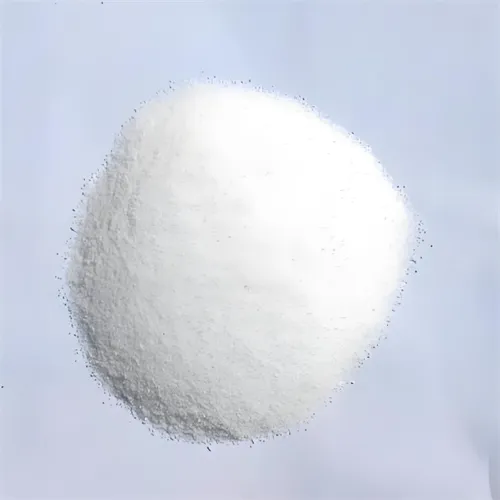 Email: sale@hebeidisha.com
Email: sale@hebeidisha.com
 Tel: +86 13315186550
Tel: +86 13315186550
- Afrikaans
- Albanian
- Amharic
- Arabic
- Armenian
- Azerbaijani
- Basque
- Belarusian
- Bengali
- Bosnian
- Bulgarian
- Catalan
- Cebuano
- China
- China (Taiwan)
- Corsican
- Croatian
- Czech
- Danish
- Dutch
- English
- Esperanto
- Estonian
- Finnish
- French
- Frisian
- Galician
- Georgian
- German
- Greek
- Gujarati
- Haitian Creole
- hausa
- hawaiian
- Hebrew
- Hindi
- Miao
- Hungarian
- Icelandic
- igbo
- Indonesian
- irish
- Italian
- Japanese
- Javanese
- Kannada
- kazakh
- Khmer
- Rwandese
- Korean
- Kurdish
- Kyrgyz
- Lao
- Latin
- Latvian
- Lithuanian
- Luxembourgish
- Macedonian
- Malgashi
- Malay
- Malayalam
- Maltese
- Maori
- Marathi
- Mongolian
- Myanmar
- Nepali
- Norwegian
- Norwegian
- Occitan
- Pashto
- Persian
- Polish
- Portuguese
- Punjabi
- Romanian
- Russian
- Samoan
- Scottish Gaelic
- Serbian
- Sesotho
- Shona
- Sindhi
- Sinhala
- Slovak
- Slovenian
- Somali
- Spanish
- Sundanese
- Swahili
- Swedish
- Tagalog
- Tajik
- Tamil
- Tatar
- Telugu
- Thai
- Turkish
- Turkmen
- Ukrainian
- Urdu
- Uighur
- Uzbek
- Vietnamese
- Welsh
- Bantu
- Yiddish
- Yoruba
- Zulu
Oct . 04, 2024 17:52 Back to list
propylene glycol hydraulic fluid
Understanding Propylene Glycol Hydraulic Fluid
Propylene glycol hydraulic fluid has emerged as a crucial component in various industrial applications, particularly in sectors where safety and environmental compliance are paramount. This type of hydraulic fluid utilizes propylene glycol as its primary base, offering both ecological advantages and effective performance.
One of the most notable features of propylene glycol hydraulic fluid is its enhanced safety profile. Propylene glycol is recognized as a safer alternative compared to other hydraulic fluids, such as those based on mineral oil. It is non-toxic and biodegradable, reducing the risk of environmental contamination in case of spills or leaks. This characteristic makes it an excellent choice for applications in food processing, pharmaceuticals, and other environments where product safety is a priority.
In addition to safety, propylene glycol hydraulic fluids also exhibit superior thermal stability and low-temperature performance
. They can operate efficiently in a wide range of temperatures, maintaining robust flow and performance even in extreme conditions. This resilience makes them suitable for a variety of hydraulic systems, including those in agricultural machinery, construction equipment, and other industrial applications where reliable operation is essential.propylene glycol hydraulic fluid

Moreover, propylene glycol hydraulic fluids have good lubricating properties, which contribute to the longevity of hydraulic components. The fluid minimizes wear and tear on pumps, valves, and cylinders, thus extending the lifespan of machinery and reducing maintenance costs. This efficiency is particularly advantageous for businesses looking to optimize their operational budgets while ensuring the reliability of their equipment.
In recent years, the demand for environmentally friendly hydraulic fluids has surged, driven by increasing regulatory pressures and a growing awareness of sustainable practices. Propylene glycol hydraulic fluid meets these demands by providing a green alternative without compromising performance. Industries are gradually shifting towards these fluids not only to comply with environmental regulations but also to enhance their corporate social responsibility initiatives.
It is essential to note that while propylene glycol hydraulic fluids offer several advantages, they must be handled and disposed of correctly to maintain their environmental benefits. Proper training and guidelines should be provided to personnel handling these fluids, ensuring safe practices and minimizing potential risks.
In summary, propylene glycol hydraulic fluid stands out as a modern solution combining safety, efficiency, and ecological responsibility. Its unique properties make it an ideal choice for a variety of applications, aligning with the needs of industries looking to innovate while remaining compliant with safety and environmental standards. As the world moves towards more sustainable practices, propylene glycol hydraulic fluid is poised to play a pivotal role in the future of hydraulic systems.
Latest news
-
Certifications for Vegetarian and Xanthan Gum Vegetarian
NewsJun.17,2025
-
Sustainability Trends Reshaping the SLES N70 Market
NewsJun.17,2025
-
Propylene Glycol Use in Vaccines: Balancing Function and Perception
NewsJun.17,2025
-
Petroleum Jelly in Skincare: Balancing Benefits and Backlash
NewsJun.17,2025
-
Energy Price Volatility and Ripple Effect on Caprolactam Markets
NewsJun.17,2025
-
Spectroscopic Techniques for Adipic Acid Molecular Weight
NewsJun.17,2025